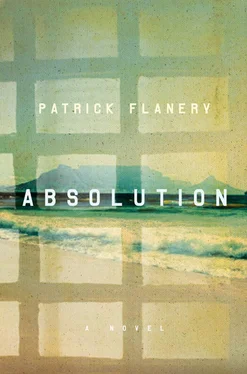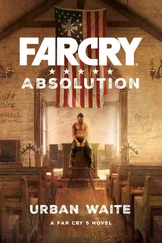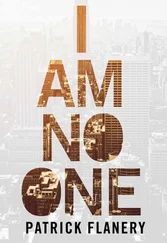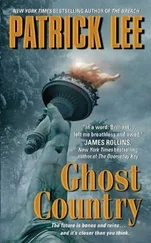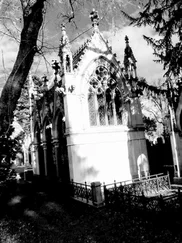‘Take a lover,’ he said, in a way that sounded half-mocking. ‘Or get a blow-up doll.’
‘Don’t be ridiculous, William. I can’t get used to the extra space. You’ve left a gap.’
‘Then downsize. Buy yourself a luxurious single bed, a canopy. Make yourself over into a dowager princess.’ He could be like this, teasing in a way he claimed was affectionate.
There was a silence between them on the line. On his end, only the other side of the city, around the mountain on the Atlantic coast, she could hear seagulls braying.
‘Did I do something wrong?’ she asked. ‘Was there something else I should have done?’
He sighed and she could hear him adjusting the receiver against his face, the microphone amplifying the sound of the plastic surface making contact with his stubble.
‘No, my dear, there’s nothing else you could have done or should have done. Don’t torment yourself by thinking that you failed to do anything. You can blame me with good reason and tell everyone that’s the case. The acrimony can come raining down on my head. I’ve been selfish and I’m not proud of it, but there it is. The truth is, I’m happy now. I imagine I would have been happy in a different way if I’d gone on living with you, if I’d never met — sorry, I know you don’t want to hear about her.’
‘What is her name?’
There was another pause and a hesitation and then he said, as if the name itself were a sigh or exhalation of breath, ‘Aisyah.’
In a flash Clare had understood. William’s leaving really did have nothing to do with her. There had been many mistresses in the past, she knew, including a number of his students. She had suspected on one or two occasions that the relationships had resulted in serious complications and entanglements and unforeseen responsibilities. But with this new woman it was all about the possibility of a wholly different kind of life, a new way of living in a country alive to new promise.
That she might not wake in profound darkness, alone in her new house that would always feel too large, too self-directing and sentient, able to reorganize its own architecture into something completely unexpected — a museum or morgue, for instance — the moment its inhabitants lapsed in their vigilance, Clare left the light on in the passage and put herself to bed.
After an hour of turning first left and then right she had nearly fallen asleep when there was a sudden interruption in the light, as if from a momentary power outage — or worse, from the movement of someone passing between her and the door. She lay as still as she could, listening for a noise, remembering she had forgotten to engage the alarm. There was no sound apart from the hum of the ventilation system and the soughing flow of air, but Clare was certain she had registered a change in the light through her closed eyelids. She supposed it might have been a power outage — load shedding was the supplier’s euphemism, as if provision of a basic service were a burden to be borne — but it had not felt like that, and the transition from the public utilities to her own generator should have been seamless. No, there were people in her house, friends or family of her dead brother-in-law, one of his six brothers and sisters or countless cousins, men and women as old as Clare herself, come to remind her once again of the knowledge they possessed about her. The removal and return of the wig was not enough; now they were intent on tormenting her in new and more terrible ways. As with the invasion at the old house on Canigou Avenue, her heart took over, beating in terror and outrage that anyone should dare to enter.
The light was interrupted again, and then remained so, half of what it should have been. Someone was standing in the doorway to Clare’s room. If this is going to be the end of me, let it come, she thought, and opened her eyes.
I cannot bear it any more, my vision, conjured out of horrible imagination, of you trussed like a lean pig, waiting for your fate in that titanium cage, clicking for your sanity. I try again what I have tried before. I offer you the cup, a song of my own invention, and wish for you to cohere again, my wandering daughter. In the garden I make a fire of dried leaves from the neighbour’s eucalyptus tree and a pile of twigs cut last winter from the branches of the stinkwood. It crackles and smokes and turns itself over into a gentle blaze. I pour honey and milk on the flames, a glass of wine, and water that has run down from the mountain. In the absence of barley, I sprinkle white cornmeal over the fire, grinding the grain between my palms. I do it correctly this time. I pray to you Laura, plead with you to come forth, promise to sacrifice a black sheep in your honour. I prick my finger to summon you, extract a drop of my blood to body you forth. I did not do it properly before: the bloodshed was only in my mind. I drone and squeak. I dance with steps of my own devising, an unbalanced dervish, hair in the wind, a blue crane, a crone. I keen as I should have keened before. The ibises watch me and cry out in chorus.
I wait until the fire burns itself out, knock the coals apart, heap them with ash, see the windows of my neighbour’s house go black as, bored by my theatrics, he finally puts himself to bed. I told Marie I did not wish to be disturbed, but no doubt my neighbour has been watching as neighbour-men do, passing judgement in his way. He will tell the other neighbours, the grandees of the Constantia Club, that Clare Wald practises witchcraft. They will read the new book to see if there are any hints to the nature of my devilry. I predict a spike in local sales. I no longer care if I am seen and thought mad — or worse, sane and an agent of evil.
In the darkness with the moon spitting off the mountain, I sit before my pile of ash, running my fingers through the grey feather-petals. Silence, and breeze that stirs the cinders, but you have not come. Myth is only myth. Perhaps you are too long dead. Perhaps the recipe or incantation had a flaw.
I go inside, locking the doors behind me, engaging the alarm that makes Marie and me feel secure until morning. With the disappointment at your failure to appear, there is also comfort. If you do not rise, there is still a chance you are not dead. But if not dead, then where are you, Laura? Where have you taken yourself? It does not seem possible that you would wander the world without contacting one of us — and if not your father or me, then at least your brother. You cannot still be in captivity; that is only a discomforting fantasy. No, you can only be dead, and I am no believer in the supernatural. It was foolish to pretend I was.
I shower and roll myself into bed, crack my back straight, turn on my side, and bury my head half in the pillow. In sleep I drift through dreams of you, always dreams of you abandoning me, and if not abandoning, then caged, your body exposed, waiting to be consumed by sharks, the bones picked by palm-nut vultures when the tide goes out, bones sinking into the estuary silt, waiting for the next age to discover you, this country’s own bog woman, victim of the gladiatorial ring with victims of your own.
My scream pulls me out of sleep and I sit erect in bed, blankets swirling around me, because I felt your breath and the coldness of your hand, and now, out of sleep, you come screaming back at me on black rag wings burned with blood, chanting a haunting cry into my eyes. You worm yourself between my toes and infect my bowels, a tapeworm foetus angry for rebirth.
I wake up screaming, and Marie comes to my door. She is the keeper of my secrets. I could never let her go. ‘Nothing is wrong,’ I say, ‘only a bad dream.’
But it was no dream, and you have not come alone.
Читать дальше
